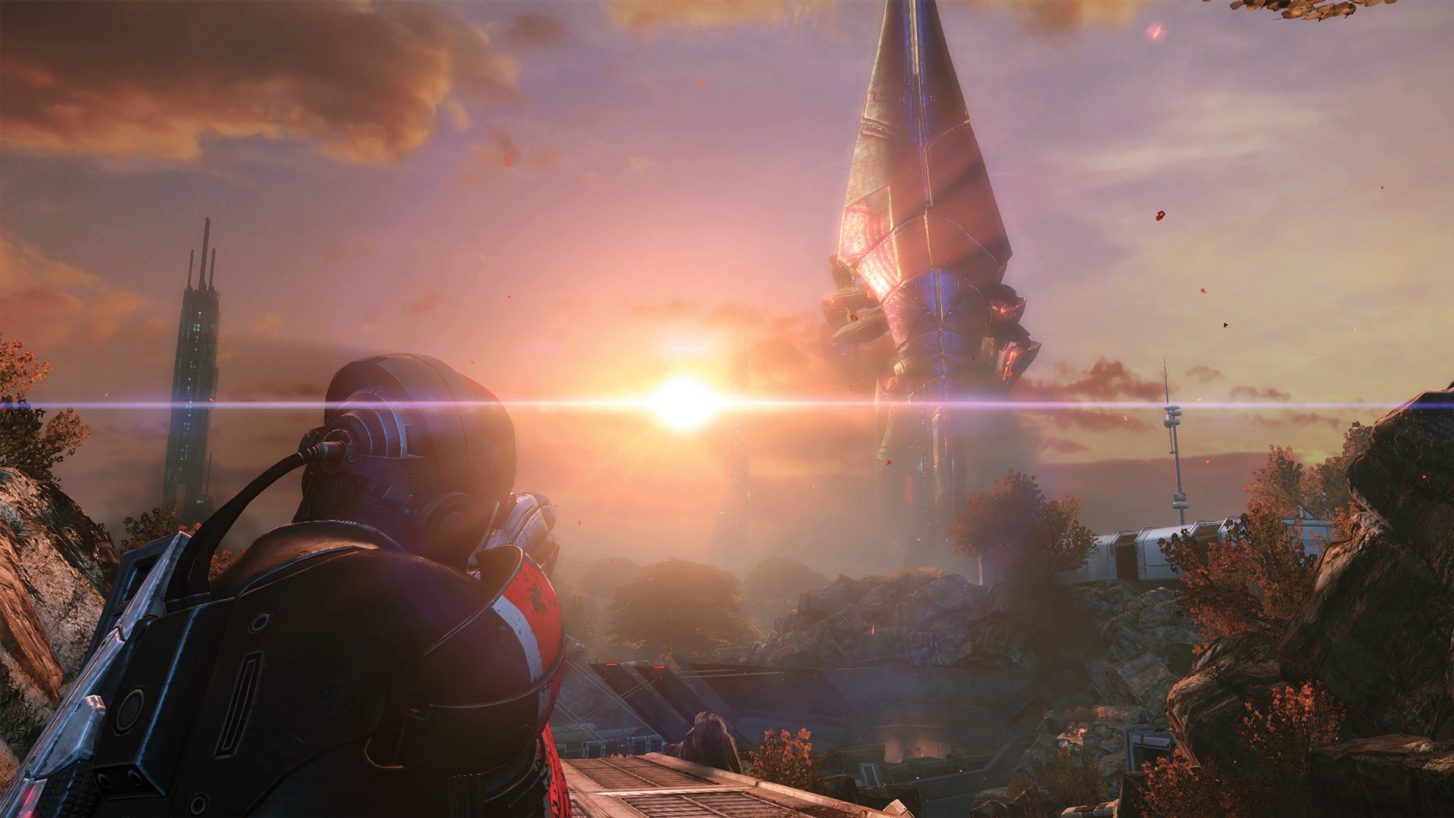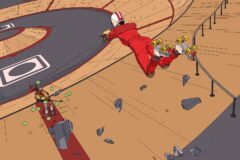For at least the past handful of years (probably more like seven or eight, but who’s counting?) there have been rumors, leaks, and countless wishes for remastered editions of the original Mass Effect trilogy. Mass Effect: Andromeda didn’t exactly leave the best taste in a lot of people’s mouths with its 2017 release, and it began to seem more and more like the flop of the fourth game had pushed EA and Bioware away from bringing new life to the first three.
But late last year — while much of the gaming world was gearing up for the release of the new consoles — fans celebrated the game’s “N7 Day” holiday (Nov. 7) with official confirmation that Mass Effect Legendary Edition would be coming in 2021. Containing remastered and significantly upgraded versions of all three original games and their DLCs, Legendary Edition is pretty much everything that fans could’ve hoped for and more.
Following a successful release on May 14, SPIN sat down with project director (and writer of the original trilogy) Mac Walters to chat about what went into revitalizing one of the most influential video game trilogies of all time.
SPIN: Knowing how these remasters were anticipated and how people love the originals, was there any additional pressure in feeling like “OK, we have to get these right”?
Mac Walters: I would say there was more pressure than just releasing any other single title because of the anticipation, the expectation, and the reception of the original trilogy. When you’re remastering something that beloved — and also that critically acclaimed — one of the things people say is “Oh, you’re starting from this amazing foundation.” But my cynical nature looks at it as “Yeah, that means we have a really small margin of error, and anything we change is more likely to be a change for the worse — or at least a lateral move that could be perceived as worse by a large, large percentage of people.” So it means a lot of pressure in releasing it, but having it out there now and seeing the response — seeing old fans coming back in and new fans picking it up for the first time — is a huge moment, and obviously a bit of a relief. It’s very gratifying to see.
Considering that the first game is almost 14 years old now, how did you go about making it feel modern while still staying true to the original?
We’re not just remastering games and products, we’re remastering people’s memories of those games and the experience that they had. You’re in this weird sort of zone where you want people to notice the things you’re doing — that’s just the nature of being a creative developer — but at the same time, you just want them to pick it up and go “Oh, yeah, this is just how I remember it.” So it’s only when they see it side by side, that they go “OK, I really see what you did there.” But on [the first] Mass Effect specifically, there were quite a few things we did. Fans have been asking for this for a long, long, long time, so we have a community out there that’s been modding the PC version for years. From that, you can start to gauge what people would change and what they already have changed within the modding community that’s had a really positive reception. You can start to create a sort of fan wish list without necessarily going out and engaging with the fans, because we wanted to maintain some level of secrecy around it. One of the other key things we did was form what we call the “Community Council” of people from the modding community, streamers, cosplayers, and just people who we knew would be passionate and care deeply about those changes. Once we had the game to a point where we were pretty confident in the direction we were heading, we started bringing them into the fold and saying “We’re going to share with you what we’re doing,” to really try to get some feedback from them. You have to trust your instincts as a developer because at the end of the day, you’re going to have to make the call, but having that sort of affirmation and critical feedback on certain things is critical.
Now that action-heavy RPGs with branching stories based on player decisions are a lot more common than they were in 2007, what’s it like to reintroduce Mass Effect to the genre that it really helped popularize?
One of the things we asked ourselves when we first started was “Is there anything that we shouldn’t be touching because it’s too central to the memory and the experience?” And at the heart of that is really this concept of Shepard and Shepard’s decisions. It’s three games designed as a trilogy where your choices matter as you go from game to game to game. We quickly realized that we needed to maintain the heart and soul of the trilogy, which meant we shouldn’t be touching any of that. No character changes, no character arc changes, the story, the decisions, all of that. So when revisiting it [compared to modern games], we had to look at things like the gameplay, camera and visuals. We should be improving those where we can, but we felt fairly confident that the heart of the experience — those stories and decisions — remained relevant today as much today as it was back in the day. That gave us that anchor to work around and focus our efforts to try to bring everything up around that.
One of the most impressive things about Mass Effect has always been how the three games not only build off each other, but tell one continuous story. Seeing how difficult it is even for Hollywood to do that for dozens of hours, how did you pull it off?
It’s a little bit of discipline mixed with a little bit of cowboy attitude. Back in the day, we knew each title had to stand on its own. We would have maybe a paragraph or so of where we’d like to end up and where we’d like to go next, knowing that we’d have to make a sequel if it’s successful. But we weren’t necessarily tying our own hands with where that was going, so as we were developing the story in the games, we weren’t ever letting the future hold us back — even if we had these very simple stakes in the ground for going forward. It could be as simple as saying that the second game is meant to be a little bit of a darker middle act, but don’t tie yourself to story details. A great example of that is the suicide mission. You say “OK, we’re doing a suicide mission,” and everyone goes “What do you mean by suicide? Do you mean people can actually die or is it just kind of like when Superman dies and comes back to life or something?” And we said “Nope, they can actually die if you play this out a certain way. The people that you’ve gathered throughout this whole game can die.” Of course, the question that comes up is “What does that mean for the next game?” And we were like “We’ll figure it out. It doesn’t matter. This is the story that we want to tell here.”





